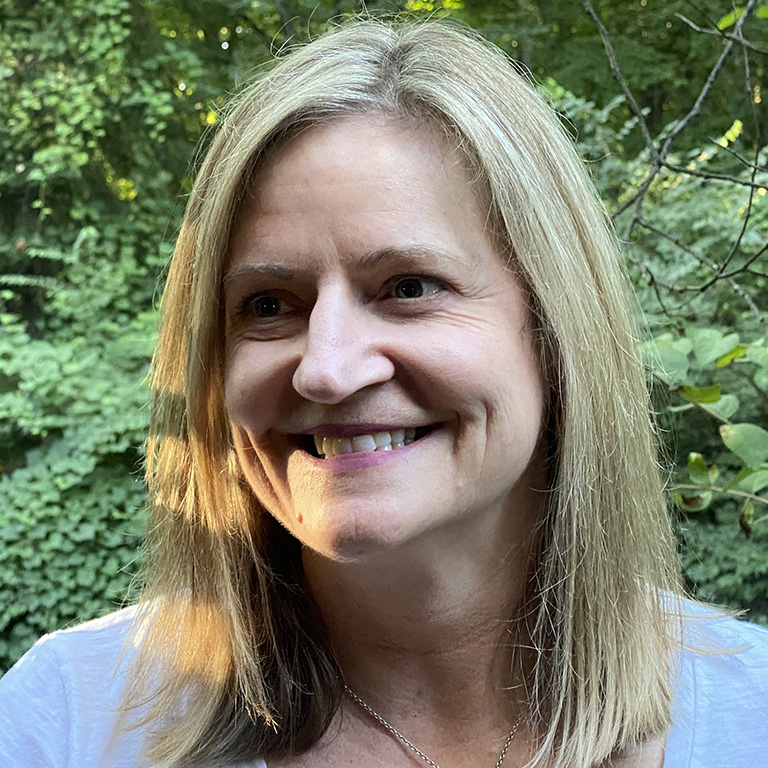SOC: You started your first year in Bloomington in the fall of 2020. How have you managed your research and teaching agenda while transitioning during a pandemic?
Jennifer: The transition during the pandemic has been weird. For one thing, I was anxious about starting a new job last summer, and here I am feeling anxious about starting a new job again this summer! Now that I am gearing up to actually meet everyone in person this year, I am getting even more excited about being part of IU. I felt a bit like I didn't have a work "home" during the past year. The transition was a little extra stressful because both of my kids made big transitions, too – my daughter Elena (now age 18) started college at Tufts University in Boston, and my son Noah (now age 15) started high school in Michigan. Although it was a difficult year for us in many ways, we have been extremely grateful for our health, each other, and all the stability that my job provides.
SOC: You won the 2020 Article of the Year Award from the ASA Sociology of Family section for your article, "The Dynamics of Intimate Partner Violence and the Risk of Pregnancy during the Transition to Adulthood." Can you say a few words about how that study developed from your previous work?
Jennifer: That article started forming in my head while I was doing the semi-structured interviews as part of the Relationship Dynamics and Social Life project, back in 2008-2012. In the first ~10 interviews I did with pregnant young women, something like 7 of them told me horrific stories about violence they had experienced. "Samantha" from the paper was the first woman I interviewed. She talked about how her boyfriend (whom she was still with) thought she was flirting at a funeral and as a result, drove her to a secluded park at night and hit her in the face. They had sex after that, while her nose was still bleeding.
SOC: Wow. Horrific indeed. Tell us a little about your main takeaways from that study.
Jennifer: I'm embarrassed to admit that I was a bit blindsided by how much violence there was among the pregnant women. One of the take-home messages from that paper is that the women who experienced intimate partner violence got pregnant at about 2.5 times the rate of the women who didn't experience violence.
SOC: That's a sobering finding, and it underscores the importance of your research. But do you ever have time to step away? How do you relax when not engaged in your work?
Jennifer: I am a daily NYT Crossword solver. It is my favorite way to "check out" from the world. My husband and my kids know that if they talk to me while I am solving the puzzle, I probably won't respond (unless I need Noah to name the moons of Saturn, Elena to tell me the name of a recent Kanye song, or Brian to tell me which elements are adjacent to manganese on the period table).
SOC: That's a pretty fun pastime! How did you get started puzzling?
Jennifer: I started solving the Sunday puzzle when Donald Trump was elected president, because I no longer wanted to spend my Sundays reading the paper. It initially took me all week to solve the Sunday puzzle! Five years later, I solve the puzzle every day. Sundays are my least favorite; Fridays are my favorite. (The puzzles increase in difficulty from Monday through Saturday, and the Sunday puzzle is larger but about the difficulty level of a Wednesday.)
SOC: I routinely regret starting with a pen, but it sounds like you're becoming a pro!
Jennifer: I actually constructed a puzzle and submitted it to the NYT early during the pandemic, but it got rejected. On the bright side, I did get a personal email from the crossword editor, Will Shortz (an IU alum!), with the rejection and a few comments about how to improve future puzzles :-)
SOC: Please do let us know if your next puzzle is accepted! I'm sure we'd all be delighted to give it a try. Welcome, Jennifer! It's a pleasure to have you aboard.

 The College of Arts
The College of Arts